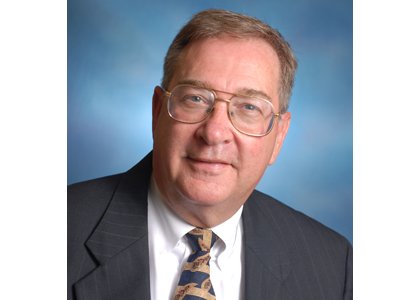BALTIMORE — According to the Centers for Disease Control (CDC), African Americans are more than twice as likely to have a foot or leg amputated due to diabetes than non-Hispanic whites.
The health care experts at Saint Agnes Hospital’s Wound Care Center® want to raise awareness about preventing chronic wounds in African Americans by offering preventative tips and other information.
“Saint Agnes is focused on improving the lives of the people in the communities we serve and our patient-centered Wound Care Center allows us to do just that,” said Dr. Karl Mech, medical director for St. Agnes Hospital’s Wound Care Center. “With such a large African American patient community, we are dedicated to constantly educating our patients and helping prevent and cure diseases and conditions such as diabetes, obesity, and heart disease that can lead to chronic wounds.”
“Half of the patients in our clinic are diabetic,” said Dr. Mech. “We think of diabetes as a problem with blood sugar, but it affects much more. It affects our blood vessels, nerves, and other things. One of the direct relationships is that people lose the ability to feel in their feet. In other words, the ordinary feeling, which would be pain, does not exist. When they lose the ability to feel, they may injure themselves without knowing it, which can develop into long-term wounds.”
He added, “An infection can occur within the depths of wound and could go down into foot and joint of the toe or bone. Once it does, then it can become a difficult problem to manage. Amputations occur because infection enters the wound and goes up the limb.”
Saint Agnes’ Wound Care Center provides specialized treatment for chronic or non-healing wounds and employs a rigorous scientific approach to explore, test, find and develop the clinically proven methods and technologies, which reintroduce the body’s innate ability to heal. The center uses a multidisciplinary model of care, state-of-the-art technologies, including hyperbaric chambers, and thorough evaluations to develop a customized treatment plan to best suit each patient’s needs.
“The wounds we are speaking of here are chronic wounds,” said Dr. Mech. “These wounds have been present for months and years without being able to close up. In many cases, these patients have seen doctors on several occasions for the same problem. Because of our multiple resources, the Wound Care Center can treat these wounds better. Many doctors are sending patients our way.”
The Wound Care Center is also a member of the Healogics™ network,
Headquartered in Jacksonville, Florida, Healogics is the nation’s largest provider of advanced wound care services.
“Statistics show that we can heal over 92 percent of these wounds,” said Dr. Mech. “We can make a big difference. Once a patient has diabetes, they need to manage the problem with their doctor carefully. We see many who are not very careful with their management. They need guidance and attention. It is not particularly pleasant to have to change your diet, but it is necessary.”
Dr. Mech said the best remedy is early prevention.
“It’s not complicated. It seems simple to say ‘don’t over feed your children.’ Just because our food supply is abundant, doesn’t mean all of it is good to eat. You also have to exercise. Exercise is fundamental to organs and the prevention of these problems.”
Dr. Mech applauded First Lady Michelle Obama’s Let’s Move! campaign, which seeks to end childhood obesity in the United States.
“The work Michelle Obama is doing to promote young people to exercise is a very important step. I also have to emphasize how important it is to stop smoking. Patients come in later in life with blocked vessels due to smoking.”
Dr. Mech also advised individuals who sustain wounds from deep cuts and other injuries to seek treatment.
“The best thing they can do is clean the wound immediately, wrap it up and then come in and see us. Tap water is good for tissue and very healthy. However, the wound needs to be examined for damage.”
He dismissed the notion that a dog’s saliva was helpful to treating a wound.
“There is no evidence that it is worthwhile. The transfer could be hazardous.”
For more information on the treatment of chronic or infected wounds call 410-368-2370 or visit http://www.samc.com/wound-care.
